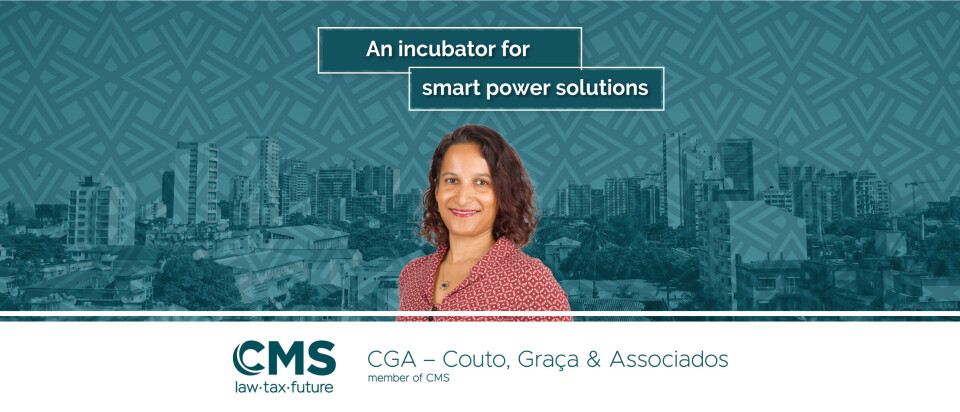Energy projects can be very costly and, given that projects in Africa are perceived internationally as carrying greater risk, development finance institutions (DFIs) play a critical role on the continent in several ways, says energy and infrastructure expert Gisela Graça.
“Our energy landscape is very inspiring and creative, and I would say Africa is a perfect laboratory for innovating smart power solutions,” commented Graça, a senior lawyer at leading Mozambique firm Couto, Graça & Associados (CGA). “New renewable energy technologies like energy storage systems and smart metering mobile technology are being tested and implemented in Mozambique and across Africa. This is very challenging, but also very inspiring.”
Despite it being a perfect lab, Graça notes that African countries have found it difficult to access international finance markets to fund development projects. Reasons for this include poor credit ratings, budgetary constraints on public finances, political instability, and local currency risk.
“The role of DFIs has been key to financing and making renewable energy projects viable,” she explained. “DFIs become like a catalytic tool, helping to attract investors. Where there’s a DFI in a project, it’s seen by banks and the international community as kind of a guarantee of the fulfilment of the states’ obligations. Projects become more attractive and it inspires confidence.”
Graça and her CGA colleagues have worked in Mozambique’s energy sector for many years, advising and working with DFIs, project developers, independent power producers and government. Their firm is also part of international giant CMS, which has over 4 800 lawyers working in 40-plus countries and has advised on African deals for more than 50 years.
“We have been working on the PROLER renewable energy auction program in Mozambique, and assisted the Ministry of Mineral Resources and Energy within the drafting of the energy sector reform roadmap as well as with drafting the new Electricity Law,” Graça shared. “So this allows us to understand the challenges of the sector from the point of view of each stakeholder.”
DFI involvement in energy projects brings confidence not just because of their financing, noted Graça, but also because of the rigorous assessments they make to invest, and everything else they do. DFIs require “very strict compliance” with environmental legislation, public tendering and anti-corruption laws, and provide technical assistance to governments, she explained.
By financing and supporting tenders’ programs for renewable energy projects in Mozambique, DFIs will help achieve universal access to electricity in Mozambique by 2030. Such projects also contribute to reducing greenhouse gas emissions.
Regarding the auction programs, DFIs “finance development studies and feasibility studies, help structure the project, assist with launching the tenders and with tender evaluations, so it makes companies much more confident about participating,” said Graça.
“In general, DFIs take more risks than commercial banks, provide more favourable loans and finance development costs, but also provide technical assistance – a very good contribution.”
Similarly, Graça and her CMS colleagues offer broader support to the energy sector than just transactional advice. Today’s fast-changing landscape is impacted by climate change, technological disruption, urbanisation and social concerns, and requires expertise in geopolitics and economics, as well as regulatory compliance. Thanks to their longstanding work on designing and implementing modern energy markets, and guiding the sector’s push to decarbonisation, CMS is ideally placed to assist stakeholders to shape an exciting future.
To join Africa Legal's mailing list please click here

